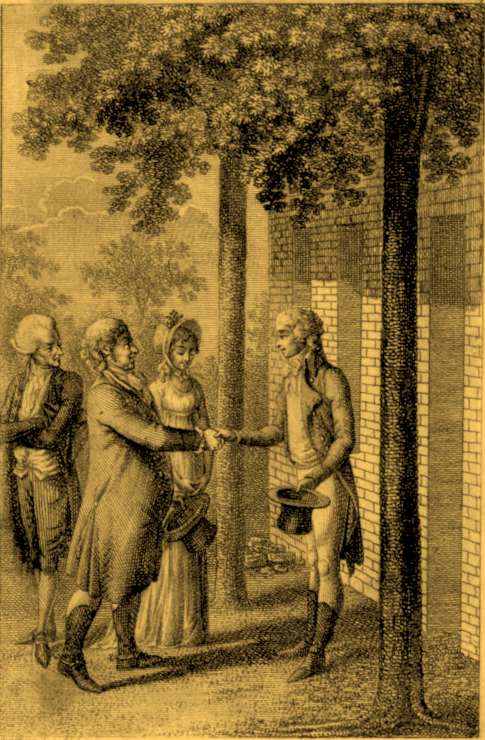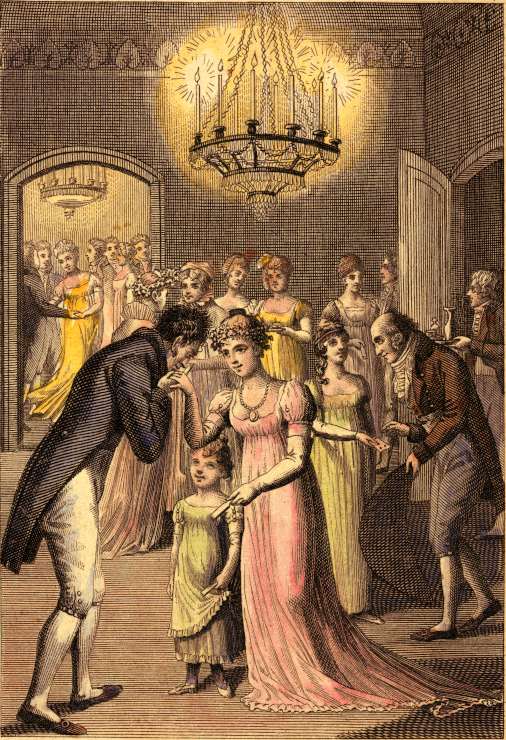• 11. Caroline to Julie von Studnitz in Gotha: Göttingen, 5 February 1780 (Fr.)
Göttingen, 5 February 1780
|21| . . . I have come up with an idea, but unfortunately I dare not hope it might actually be achieved. When Mlle. Louise Stieler invites me to celebrate her wedding, [1] how could I refuse the invitation? Gotter will come fetch me to pay my addresses to his fiancée, and so of course I will come. What do you think? Would that not be rather nice? Surely you can understand |22| how much these beautiful dreams make me rejoice like a child.
Nevertheless, I feel only too well that the saying “Happy in one’s pleasant illusions, who has need of reality?” does not suit me at all and that even my most beautiful illusions will not satisfy me. I often dream about being near you and believe I am tasting all of friendship’s sweetness after a long absence, but then, suddenly, I awake, and how terrible an awakening it is!
Mademoiselle Stieler announced her marriage in a charming letter. She deserves to be as happy as one can be, and one of my most ardent wishes will be fulfilled if she indeed is. Gotter needed a woman as sweet as she is witty, like Louise. She is content with her fate, and I wish for nothing more than that Gotter will make her just as happy as she will make him. [2]
Several days ago we received news from America for the third time. One cannot be happier or more content than my brother; but what he misses is friends. There people think only about making money, and profit is king everywhere.
The most recent newspapers reported that Washington was dead, and I was all ready to celebrate his death when, unfortunately, I learned I would be rejoicing in vain, since he was still in the best of health. Perhaps he has no more desire to die than I. I do not believe, however, that the war can last much longer, though the death of Washington, who must be an excellent general, would have put an end to everything, and I would have seen the best of brothers once again. . . .
You would perhaps not guess that the birthday of the Grand Prince of Russia was also just celebrated here as well. All that remains for us now are the assemblies and our |23| excellent concerts, which are probably one of Göttingen’s greatest advantages. [3] Nor is there anything more entertaining to see than our assemblies, which are a mélange of all possible nations. The Swedes stand out especially by their clothes, which however I do not particularly like. One even sees Americans, for example, the son of General Gage, who was born in America. The last assembly was so crowded one could hardly move. [4] . . .
I read the Menschenfreuden and am about as pleased with it as one can be. [5] . . .
Your affectionate and devoted Caroline
Notes
[1] Some confusion obtains concerning the exact date of the marriage between Luise Stieler and Friedrich Wilhelm Gotter. Erich Schmidt seems to have the correct date and is supported by Gotter’s own remarks. See Caroline’s letter to Luise Stieler in January 1780 (letter 10). Back.
[2] Luise’s father, Caspar Hermann Stieler, was the mayor of Gotha (Jahrbuch zur belehrenden Unterhaltung für junge Damen 1801; Inhaltsverzeichnis deutscher Almanache, Theodor Springmann Stiftung):

[3] Just which grand Prince de Russie is meant (so Caroline; also translated “Grand Duke”; she is presumbly thinking of someone with the title Velikiy Knjaz), is uncertain. – Concerning assemblies and concerts in Göttingen, see supplementary appendix 11.1. Back.
[4] Here an assembly with arriving visitors, albeit from a considerably later period, something distinctly reflected in the fashions (Der Freund des schönen Geschlechts: ein angenehm und nützlicher Taschenkalender für das Jahr 1808):

[5] Christian Friedrich Sintenis, Menschenfreuden aus meinem Garten vor Z[erbst] (Frankfurt, Leipzig 1778), first mentioned in Caroline’s letter to Julie von Studnitz on 28 September 1778 (letter 2); see note 5 there. Back.
Translation © 2011 Doug Stott
